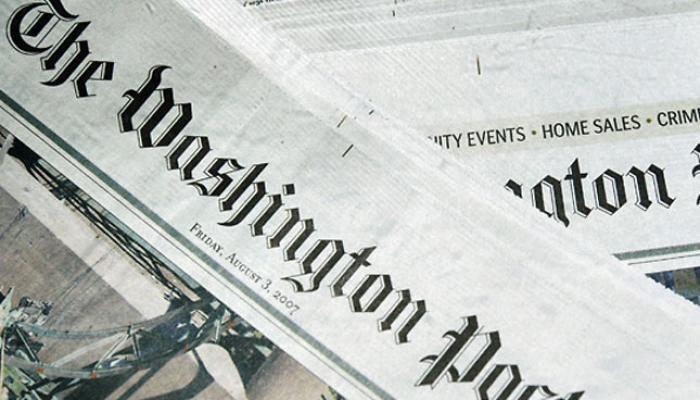Tehran, March 31 (RHC)-- A major American daily newspaper says U.S. sanctions have hampered Iran's efforts to import medicine and other medical supplies needed to fight the coronavirus pandemic. The U.S. measures have limited Iran’s ability to finance and import essential items, including drugs as well as the raw materials and equipment needed to make medicines domestically, the Washington Post said.
The newspaper quoted Iranian medical workers and global public health experts as saying that the U.S. sanctions have deprived the Iranian healthcare system of equipment necessary to save lives and curb the spread of the coronavirus.
“There are a lot of shortages now. . . . Hospitals do not have enough diagnostic kits or good quality scanners, and there is also a shortage of masks,” Nouradin Pirmoazen, a thoracic surgeon and former lawmaker in Iran, told the Post.
“Medical staff who want a specific type of medicine or equipment are having difficulty transferring money outside of Iran due to the sanctions,” added the Los Angeles-based doctor, who said he is regular contact with former colleagues in Tehran.
An employee of a major pharmaceutical company in Iran who asked not to be named said “the sanctions have definitely made the import and production processes longer and more expensive.” “Some suppliers are afraid and not willing to work with us anymore,” she said, noting that the sanctions have reduced Iran’s capacity to control the outbreak.
Iran is battling the coronavirus under the harshest sanctions which the US imposed after leaving a UN-backed nuclear deal between Tehran and major world powers in 2018.
Iran's Health Ministry spokesman Kianoush Jahanpour said on Monday that the death toll from the virus had risen to 2,757 and the total number of confirmed cases stood at 41,495.
The new coronavirus’ likely origin was in China late last year and is now spreading across the globe. Worldwide, there have been more than 700,000 confirmed cases of the virus and over 33,000 deaths.
Last week, the United Nations rights chief said any sanctions imposed on Iran, among other countries grappling with the coronavirus pandemic, should be “urgently re-evaluated” to support lives of millions of people worldwide.
U.S. President Donald Trump reinstated Washington's sanctions on Iran in May 2018 after he unilaterally left the 2015 nuclear deal, known as the Joint Comprehensive Plan of Action (JCPOA), signed between Iran and major world powers.
Iran has called on the United Nations to urge the U.S. to lift sanctions, and many countries have made similar demands, but Washington remains obsessed with its 'maximum pressure' campaign against Tehran.
The U.S. issued a new set of sanctions earlier this month, aimed at the transport of petrochemicals from Iran. Washington claims the bans do not get in the way of food and medicine exports to Iran, but Tehran says the Trump administration has been working to hamper a Swiss humanitarian channel launched to enable the transfer of commodities to Iran.
According to the US daily, companies must provide extensive information to the Treasury Department every month about the Iranian beneficiaries of the goods in order to use the Swiss humanitarian channel. The documents must include the Iranian companies’ business relationships, financial details and a written commitment from distributors that they will not allow the goods to be sold or resold to Iranian individuals or entities under sanction.
Esfandyar Batmanghelidj, founder and publisher of Bourse & Bazaar-- a media company supporting business diplomacy between Europe and Iran -- said European officials have likened the reporting requirements “to a ‘fishing expedition’ for information about the commercial relationships with European and Iranian firms.”
Mohsen Zarkesh, an OFAC sanctions attorney at the Price Benowitz law firm in Washington, said the sanctions exemptions don’t guarantee an unimpeded flow of humanitarian supplies to Iran. Washington has created “a legal and business environment equivalent to walking through a compliance mine field,” he said.
The U.S. sanctions on Iran’s oil exports have also cut off the country’s key source of foreign currency needed to purchase medical items from abroad, the daily said.
According to the U.S. newspaper, quarterly reports from the Treasury Department’s Office of Foreign Assets Control or OFAC showed that the number of special licenses granted to companies for specific medicine and medical devices exports to Iran have declined under the administration of President Trump.
The United States has imposed new sanctions against 20 companies, officials and individuals in Iran and Iraq.
The agency’s quarterly reports showed that more than half of the firms applying for authorization received licenses in the first quarter of 2016.
But fewer companies applied for authorization from July to September 2018 after the US withdrew from the nuclear agreement and the rate of approval also decreased to 15 percent in that period. Meanwhile, only 10 percent of applicants acquired licenses to export in the first quarter of 2019.
“What these reports show is a significant decline in license applications to OFAC and, accordingly, licenses issued by OFAC with regards to humanitarian goods,” Zarkesh said.


